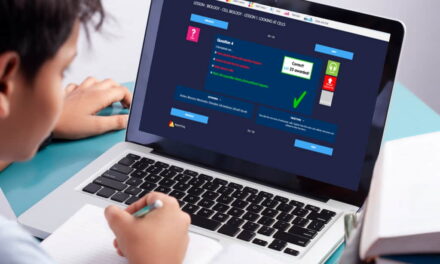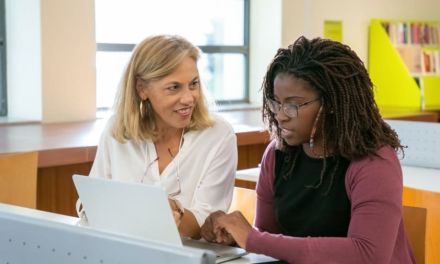A positive alternative provision provides students with meaningful learning activities which improves self esteem, engagement and subsequently quality of life and their relationship with those around them.
A positive alternative provision backs EDClass’ ethos of education for all. By providing a one-to-one support with a person or through a system they like, they are more likely to engage in education, learn and develop.
This blog post takes a look at the benefits of having a positive alternative provision where students are learning.
What is alternative provision?
Alternative provision is education which is received outside of mainstream schools.
When it works effectively, alternative provision can support learners as part of the whole curriculum and be valued by students. Importantly, it plays a key role in re-engaging pupils in education.
Find out more in this blog post.
Who is alternative provision for?
Excluded children: These children can disrupt mainstream schooling. This may include pupils who may be on the verge of expulsion, who have a chance to look at their behaviour and change it to be reconsidered back into school.
Children with challenging behaviour: Influences and peer pressure could lead to challenging behaviour which could lead to exclusion. The alternative provision process can help promote positive behaviour change.
Students for confidence building: Young people can benefit through a boost in confidence through learning in a way they enjoy and understand. It can help erase difficult issues and prepare them for future life.
School refusers: There is an increasing number of young people refusing to go to school for a number of different reasons. The victim may have been subject to bullying, complex health issues or SEN. An alternative provision can have a positive impact on their future.
Almost excluded students: Students will be passed to alternative revision if they are on the verge of exclusion. Mentors will assess what is going wrong with school life and other factors to allow them to build, improve and re-engage.
Children in care: Alternative provision is also suitable for children in care. These children can be going through a distressing period, so the alternative provision acts as support.
Why is it important for positivity in an alternative provision?
One alternative provision said:
Although we could be considered as perhaps approaching one end of a spectrum, we are still very much part of a functioning educational ecosystem, which requires all of its constituent parts to be healthy in order to thrive.
We want to avoid the frustration and stress experienced by schools and families.
However, the perception of an alternative provision isn’t always positive. However, harbour positive relationships is crucial to both the provision, and importantly the pupil’s, success.
Sadly we have experienced schools using us as kind of educational bogeyman, issuing vague threats that explain that if pupils don’t modify their behaviour they’ll be sent in our direction.
They don’t mention the amazing relationships we foster between staff and pupils, the incredible atmosphere around the centre or the small class sizes in which we can help to individualise learning.
Our incredible staff break down the wall of anxiety and apprehension and win the parents round. Many have told us they don’t want their child to leave us, such is the positive experience they are having; for many, coming to us was the single most important contributory factor that allowed them to rediscover a more positive trajectory.
EDClass: A positive alternative provision
EDClass supports students to re-engage in learning with a range of positive mechanisms to help students. This includes students with the following needs:
- Mental health problems
- Long-term illness
- Isolation
- Excluded
- 6th day provision
- Home educated
- Persistently absent
- School phobic
- Vulnerable
- At risk
- Disengaged students
- Demotivated students
EDClass is an online provision with a targeted learning pathway, which can be tailored to student’s needs and therefore enriching to the pupils.
For students who requiring behaviour lessons and support is available. In total, more than 11,000 lessons are available up to KS4 in a range of subjects, including Maths, English and Science.
Safeguarding is a fundamental of the system: with alert mechanisms, questionnaires and eyes-on learning built in. The latter means any issues as students are learning are recorded and encrypted on webcam – and issues can be raised and sent to designated safeguarding lead and other authorities if required.
The system also features a sophisticated tracking programme so you can see what lessons have been completed and how students performed.
For a free demonstration click here.
For more information call 01909 568 338.









